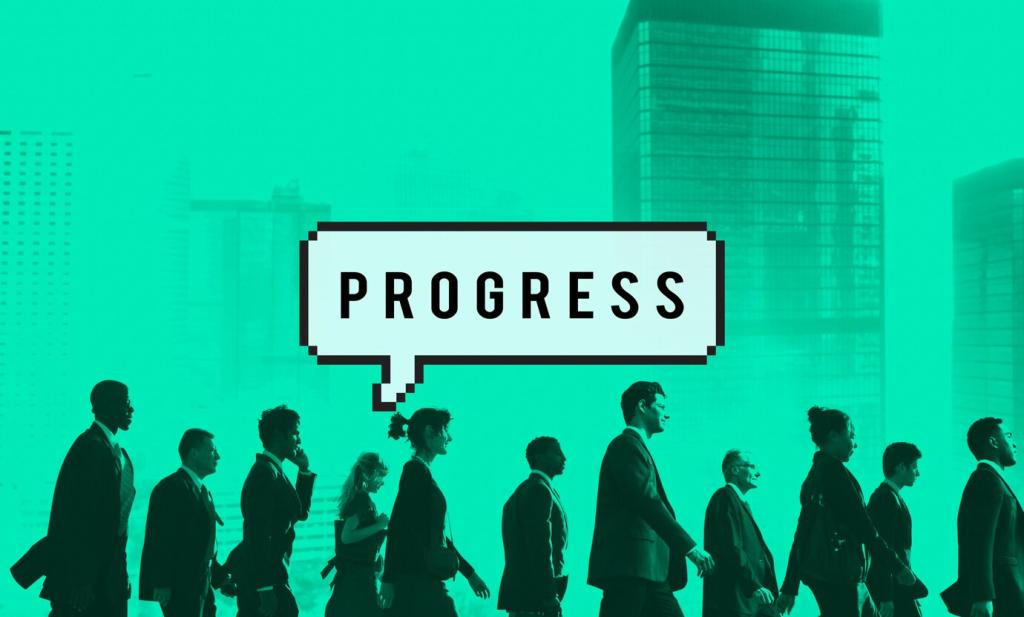Effective Personal Development Plans for Professionals
Creating and executing a successful personal development plan is vital for any professional aiming to achieve sustained growth and reach new milestones in their career. Personal development planning provides a structured approach to identify strengths, address weaknesses, and establish actionable steps that align with both immediate and long-term goals. Through thoughtful reflection and disciplined action, professionals can elevate their performance, adapt to changing work environments, and stay relevant in a competitive marketplace. This page details how to build, implement, and continuously refine a personal development plan tailored for professional success.
Previous
Next
Setting Clear and Achievable Goals
Setting professional objectives requires a thoughtful approach to what one hopes to achieve, whether it’s mastering a new skill, securing a promotion, or broadening industry expertise. Well-defined objectives should be specific, measurable, and aligned with broader career aspirations. By translating abstract ambitions into concrete milestones, professionals maintain clarity and drive in their development journey, enabling systematic tracking of progress.

Identifying Individual Strengths and Areas for Growth
Self-assessment tools and reflective practices can help professionals identify their core competencies. By evaluating technical skills, soft skills, and leadership capabilities, individuals can pinpoint what sets them apart in their field. Recognizing these strengths allows professionals to leverage them in their roles, contribute more effectively to their organizations, and build a sense of confidence supported by real, demonstrable skills.
Previous
Next
Crafting a Personalized Action Plan
Selecting Key Development Activities
Not all development activities are equally beneficial. Prioritizing those that deliver the greatest impact—such as attending advanced training, volunteering for challenging projects, or taking on leadership roles—maximizes the return on effort. Tailoring activities to address specific goals and gaps allows professionals to grow efficiently and prepares them for future opportunities and challenges.


Creating a Timeline for Success
Establishing a clear timeline supports accountability and momentum. By setting specific deadlines, professionals can monitor progress, make timely adjustments, and avoid procrastination. A well-defined timeline structures the developmental process, instills a sense of urgency, and ensures that objectives do not fall victim to competing priorities or daily distractions.
Leveraging Mentorship and Networking
Finding a Mentor
Securing a mentor offers invaluable guidance based on experience. Mentors can help navigate complex workplace dynamics, suggest development opportunities, and provide candid feedback. The ideal mentor fosters both accountability and inspiration, challenging mentees to broaden their perspective while supporting their personal and professional ambitions.
Building a Professional Network
A vibrant professional network is a source of fresh ideas, support, and new career possibilities. Networking enables professionals to share knowledge, discover industry trends, and access resources that facilitate personal development. Intentional relationship-building—with colleagues, industry peers, and thought leaders—opens doors that might otherwise remain closed and creates pathways for future collaborations.
Giving Back Through Peer Support
Peer support is a mutually beneficial element of networking and personal development. By offering guidance, sharing experiences, and providing feedback to others, professionals reinforce their own knowledge and develop essential leadership and communication skills. Fostering a culture of support and collaboration elevates teams and organizations, contributing to collective and individual growth.
Enhancing Emotional Intelligence
Self-regulation involves managing emotions and responses in high-pressure situations. Professionals with strong self-regulation skills maintain composure, demonstrate resilience, and make more rational decisions. Developing these skills leads to better conflict resolution, higher productivity, and a calmer, more focused approach to daily work challenges.
Empathy is essential for understanding and relating to the perspectives of others. By cultivating empathy, professionals improve their ability to collaborate, negotiate, and resolve conflicts constructively. Empathetic leaders build stronger teams, earn the trust of colleagues, and contribute to a positive and inclusive work culture that supports collective and individual advancement.
Effective social skills help professionals communicate clearly, forge meaningful connections, and influence others. These abilities are vital for networking, team leadership, and client interactions. Developing strong social skills enables individuals to navigate workplace politics diplomatically, advocate for themselves and their teams, and drive collaborative success.

Measuring and Celebrating Progress
Tracking Key Performance Indicators
Effective personal development requires tracking specific metrics that reflect growth. Whether these are quantitative achievements—like sales numbers or certifications—or qualitative gains—such as improved communication—clear indicators provide real-time feedback on progress. Regularly reviewing these indicators ensures that efforts are directed toward meaningful results and identifies areas for further improvement.
Recognizing Milestones
Acknowledging completed goals and milestones, no matter how small, is a critical motivator. Celebrating achievements reinforces positive behavior, builds confidence, and sustains enthusiasm for continued growth. This sense of accomplishment propels individuals to pursue larger and more challenging goals over time, fostering a cycle of ongoing development.
Reflecting on Lessons Learned
After each developmental milestone, reflecting on what worked well and what could be improved enhances future planning. Honest self-reflection turns mistakes into learning opportunities and strengths into repeatable strategies. By integrating these insights, professionals can refine their personal development plans and approach new challenges with increased wisdom and effectiveness.
